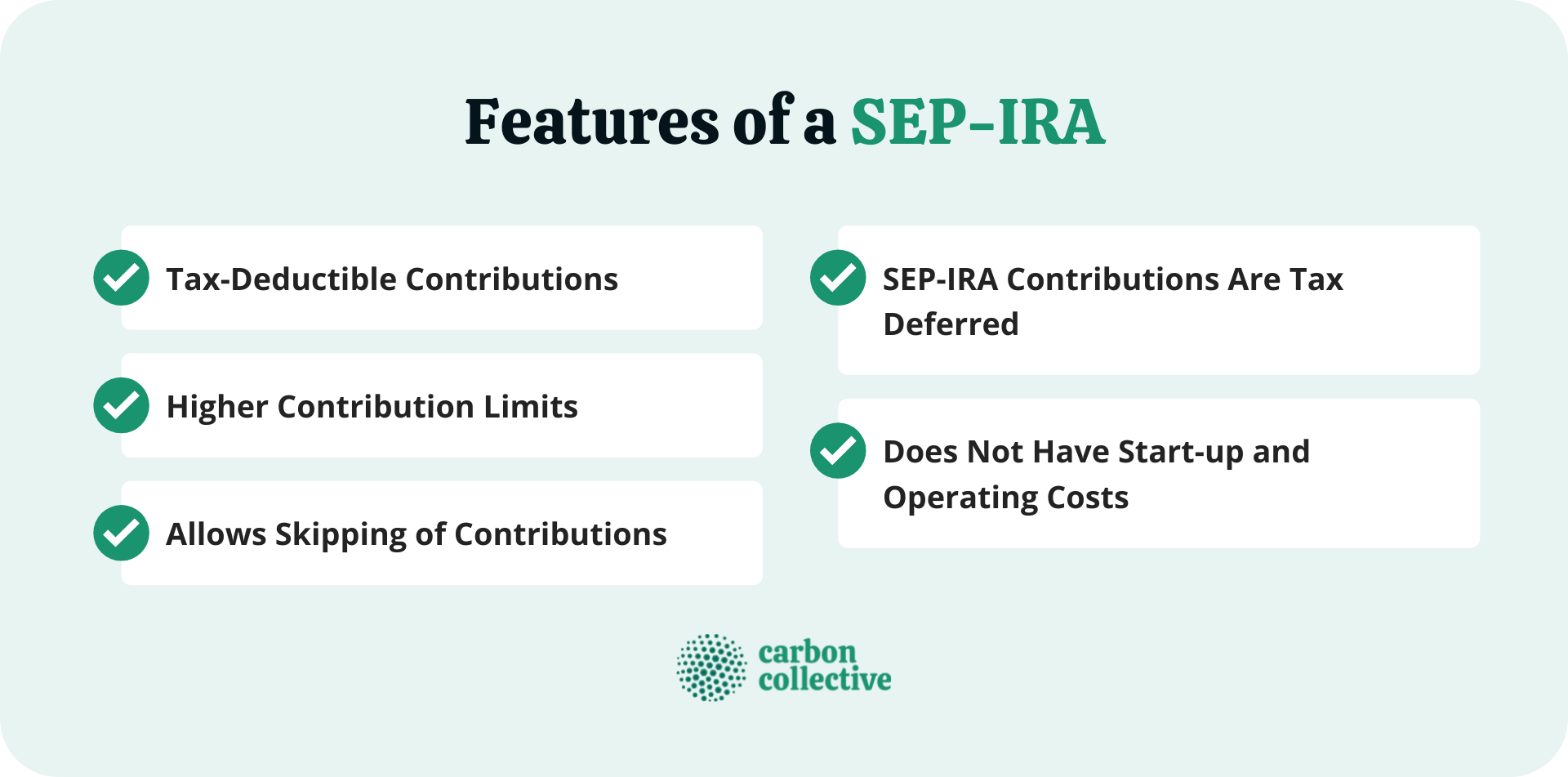What Is a SEP-IRA?
SEP-IRA stands for Simplified Employee Pension Individual Retirement Account. This type of account is especially tailored for small businesses and self-employed individuals.
SEP-IRAs are tax-deferred retirement accounts.
This means that the money inside a SEP-IRA is not taxed until it is withdrawn from the account during retirement.
SEP-IRAs can hold virtually any type of investment: cash, stocks, bonds, mutual funds, and other types of securities.

Features of a SEP-IRA
Below are some of the features of a SEP-IRA:

Tax-Deductible Contributions
Contributions made during the year to a SEP-IRA are tax deductible.
This means that if you contribute $5,000 during the tax year to your SEP-IRA, it lowers the amount of taxes that you owe.
SEP-IRA Contributions Are Tax Deferred
Contributions made during the year to a SEP-IRA are not taxed until they are withdrawn from the account during retirement.
This means that when you withdraw money from your SEP-IRA in retirement, it is treated as income and subject to taxation at ordinary income rates.
Does Not Have Start-up and Operating Costs
The absence of start-up and operating costs is what makes SEP-IRAs a favorable option for small businesses.
This is because it does not impose additional costs in the operation of the business.
Higher Contribution Limits
Compared to standard IRAs, SEP-IRAs have a higher contribution limit. This makes it an advantage for business owners who want to save more for their retirement.
Allows Skipping of Contributions
SEP-IRA plan holders are given the option to skip their contributions for a year. This is especially useful when the business is down and income is minimal.
2023 Contribution Limits of SEP-IRA
In 2023, employers who contribute to an employee's SEP-IRA should not exceed the lesser of the following:
- $66,000
- 25% of an employee's compensation
For owners of a sole proprietorship business, the limit is set at 25% of wages or profits minus the SEP contribution.
Contribution Rules of SEP-IRA
Although SEP-IRAs are designed for most businesses that do not set up employer-sponsored plans, not everyone is eligible to have the account.
Sole proprietorship businesses, partnerships, and corporations are eligible to have a SEP-IRA.
There are also limitations for participants in terms of income. The eligible compensation limit is set at $330,000 in 2023, up from $305,000 in 2022.
Also, employers can exclude certain types of employees from enrolling in a SEP-IRA.
Employees who are members of a union with a collective bargaining agreement may be excluded, as well as those who are non-resident aliens who do not receive U.S. service compensation from employers.
The rules that apply for traditional IRAs – in terms of withdrawals of contributions and earnings – are the same for SEP-IRAs. A withdrawal is taxable in the year it is made.
Any withdrawal performed before the age of 59.5 years will generally owe a 10% additional tax.
Conclusion
A SEP-IRA is a popular form of savings account for small business owners. This is because it allows them to contribute with tax benefits and high contribution limits.
Also, the absence of start-up and operating costs is what makes SEP-IRAs an effective option for small businesses.
It is essential to keep up with the rules and regulations that apply to a SEP-IRA. This ensures full compliance and helps to avoid heavy penalties.



